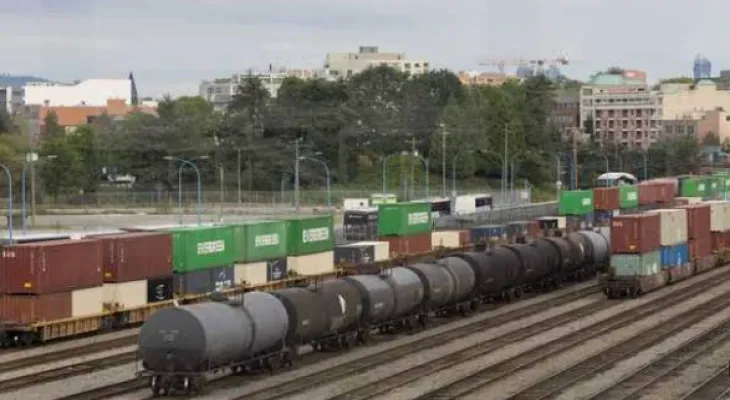Search here
Newspaper
Search here

Arab Canada News
News

Published: August 23, 2024
The transportation of goods via the railway network in Canada, which is critical to the North American economy, will resume after a disruption lasting several hours due to an unprecedented social dispute that prompted the federal government to intervene.
Canadian Labour Minister Steven MacKinnon announced at the end of the day the “immediate resumption of activities of the two railway companies.”
He explained that the government initially wanted to give every possible chance for the negotiations that ultimately reached a “deadlock” to succeed.
The minister stated that the exact timing for the resumption of railway operations is still unknown and may take up to two days.
The Canadian National Railway and Canadian Pacific Kansas City and the International Truck Drivers Union exchanged responsibilities for halting transportation lines after months of failed negotiations.
By imposing arbitration, the Canadian government has allowed the resumption of freight movement that had been halted since 00:01 (05:01 GMT).
Working Conditions
The concerned parties will resume discussions regarding a new agreement, facilitated by the Canadian Industrial Relations Council.
The dispute relates to working conditions, particularly staff redistribution, safety, and working hours.
This is the first time Canada has faced simultaneous work stoppages at both shipping companies that transport goods valued at Canadian $1 billion (661 million euros) daily.
Disruption of Freight Movement
Canada is the second-largest country in the world by area and relies heavily on rail transportation.
The interruption of the rail network stretching from the Atlantic Ocean to the Pacific shores and south to the United States will paralyze the transportation of grains, potash, cars, petroleum products, and lumber.
Despite the work stoppage that also affected some passenger trains, especially in Montreal and Vancouver, talks continued yesterday Thursday between the union and the two companies, one of which accused the employees of “drafting unrealistic demands,” considering that reaching an agreement “is not within reach” at present.
Comments